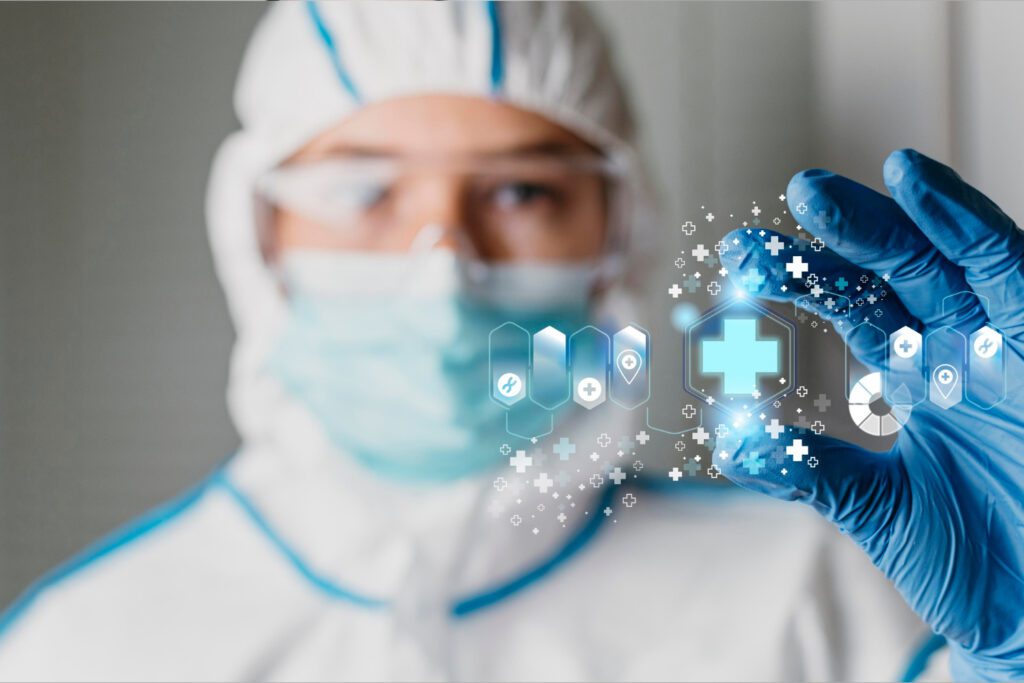In an increasingly broad world, the need for accurate and precise communication has never been more critical. The medical industry is one of the sectors where this need is most profound. Millions of dealings occur between healthcare providers, patients, administrators, and the public daily. In these encounters, the chances for error are minimal – a single mistake can have tragic consequences. Thus emerges the essential role of translation services in facilitating precise and effective communication, ensuring that diverse linguistic needs are met with professionalism and accuracy.
Global Health – A Multilingual Challenge


The health and medical sector is a complex web of terminologies, processes, and concepts. Language barriers are a significant hurdle with the migration of populations, medical tourism, and international collaborations in medical research and healthcare delivery. Patients need to understand their diagnoses, treatment options, and care plans. Similarly, medical practitioners require precise information to provide appropriate care. Here, translation services become the linchpin, bridging linguistic gaps and ensuring that language does not hinder quality healthcare delivery.
Medical Translation – A Specialized Skill
Medical translation goes beyond the conventional requirements of language translation. It demands a comprehensive understanding of medical terminologies, processes, regulations, and cultural nuances. A medical translator is not just a linguist but is often a subject matter expert, well-versed in specialized areas of medicine and healthcare. Each medical sub-field, cardiology, pharmacology, or oncology, has its lexicon, requiring translators to be adept in these specific terminologies to ensure accuracy and reliability.
Case Scenarios and Impacts
Consider the case of a French patient receiving treatment in a hospital in the United States. The intricate details of the diagnosis, treatment procedures, potential risks, and post-treatment care must be communicated precisely. A professional medical translator ensures that patients understand every aspect of their care, leading to informed decisions and consent. Similarly, collaboration between experts from diverse linguistic backgrounds is common in international medical research. Translating research findings, medical journals, and study outcomes is pivotal to sharing knowledge, innovations, and breakthroughs globally. A single error in data translation or findings can lead to misinterpretations that substantially impact public health and safety.
Regulatory Compliance and Ethical Considerations
Medical translation also plays a crucial role in ensuring regulatory compliance. Countries and regions have specific medical regulations, guidelines, and protocols. Accurate translation is pivotal to aligning medical devices, pharmaceuticals, and treatment modalities with these regulations. It ensures that products and services are safe, effective, and accessible to diverse populations, fostering global health equity.
Moreover, ethical considerations are paramount in medical communications. Patients’ rights to understand their health conditions, treatment options, and the implications of medical procedures are foundational to ethical medical practice. Translation services ensure these rights are upheld, fostering dignity, respect, and inclusivity in healthcare delivery.
Technology’s Role in Enhancing Medical Translation
In an era where technology is ubiquitous, the role of artificial intelligence and machine learning in enriching medical translation services cannot be ignored. While human expertise remains pivotal, technology offers tools that augment accuracy, speed, and efficiency. For instance, Translation Memory tools ensure consistency in long-term projects, and terminology databases ensure that specific, standardized terms are used across translations, enhancing consistency and reliability.
Role of AI and Machine Learning in the Medical Industry


Technology is pivotal in advancing administration in the ever-evolving medical industry landscape. Among the prominent technologies, Artificial Intelligence (AI) and Machine Learning (ML) stand out as transformative forces, steering in an era of enhanced efficiency, accuracy, and innovation.
Applications of AI and ML in Healthcare
AI and ML have embedded themselves in various facets of the medical field. They’re instrumental in diagnostic procedures, predictive analytics, treatment personalization, administrative task automation, and patient engagement.
Diagnostic Precision: AI algorithms are designed to analyze complex medical data, ensuring accurate and timely diagnoses. Machine learning models, trained with extensive datasets, can identify patterns and anomalies, facilitating the early detection of diseases like cancer, diabetes, and neurological disorders.
Predictive Analytics: AI and ML contribute to predicting patient outcomes, readmission risks, and potential complications. These technologies enable healthcare providers to make informed decisions by analyzing patient data, enhancing patient care quality.
Treatment Personalization: AI’s role in tailoring treatments is evident. Machine learning algorithms analyze individual patient data, considering genetic makeup, lifestyle, and existing health conditions, leading to personalized treatment plans that increase the efficacy of interventions.
Administrative Automation: AI streamlines administrative tasks like appointment scheduling, billing, and claims processing, reducing human error and increasing efficiency in healthcare administration.
Patient Engagement: AI-powered chatbots and virtual health assistants provide patients with real-time assistance, promoting engagement, treatment adherence, and preventive care.
Ethical and Privacy Considerations
With the integration of AI and ML, ethical and privacy concerns arise. Handling sensitive patient data requires stringent measures to ensure confidentiality, consent, and security. Addressing these concerns involves comprehensive legal frameworks and ethical guidelines that govern AI’s application in healthcare.
Future Trends
AI and ML’s future in the medical field is promising, with continuous innovations aiming at enhancing predictive accuracy, treatment personalization, and operational efficiency. As technology advances, collaboration between tech experts, medical professionals, legal authorities, and ethical committees is integral to maximizing benefits while mitigating risks.
How Translations Solve the Complexity of Medical Terminologies


The medical field, renowned for its specialized and technical language, faces the challenge of ensuring clear and precise communication, especially in a multicultural and multilingual context. The intricacy of medical terminologies is often a barrier to effective healthcare delivery. This is where professional translation services become indispensable, mitigating these complexities and promoting a universal understanding.
Navigating the Linguistic Landscape
Medical terminologies, rich with specific jargon and technical terms, are essential for accuracy but can also be sources of confusion, particularly for non-experts or those from different linguistic backgrounds. Translations bridge this gap, making intricate terminologies accessible and understandable to all.
- Precision and Clarity: Professional translators with medical expertise ensure that complex terms are accurately translated, retaining their original meaning and context.
- Cross-Cultural Communication: Translations enable healthcare providers to communicate effectively with patients of diverse linguistic backgrounds, ensuring that the complexity of medical jargon doesn’t impede understanding and consent.
- Legal and Ethical Compliance: Accurate translation ensures adherence to legal and ethical standards, particularly in informed consent and patients’ rights to information, ensuring that language barriers do not infringe on legal and ethical obligations.
Impact of Translation on Patient Care and Outcomes
Enhancing Patient Understanding
The first point of impact is the enhanced understanding of medical conditions, treatments, and procedures by the patients. Translations ensure patients grasp complex medical information, leading to informed decisions and consent.
- Informed Decisions: Patients with accurately translated information can make knowledgeable choices about their health, leading to better adherence to treatment plans and preventive measures.
- Empowered Engagement: Translations foster an environment where patients actively participate in their healthcare journey, leading to increased satisfaction and improved outcomes.
Clinical Accuracy and Safety
Translation impacts the precision of clinical practices. It aids healthcare professionals in understanding diverse patients’ medical histories, ensuring accurate diagnoses and personalized treatments.
- Reduced Medical Errors: Accurate translation of medical records, prescriptions, and procedural information minimizes errors, enhancing patient safety.
- Personalized Care: With translated information, healthcare providers can tailor treatments considering the patient’s unique medical, cultural, and linguistic context.
Collaborative and Holistic Care
The translation fosters international collaboration among healthcare professionals, promoting a holistic approach to patient care.
- Shared Expertise: Translations enable the sharing of medical expertise, research, and innovations globally, leading to advanced and integrated care.
- Global Health Initiatives: Translated health information supports international health campaigns, promoting preventive care and health awareness across borders.
Conclusion
The medical industry’s dynamic and complex nature amplifies the need for precision in communication. In this context, translation services emerge as facilitators and integral components ensuring that quality, safety, and ethics are not compromised. As the world continues to be a global village, these services will increasingly become indispensable, fostering a healthcare landscape where language is no longer a barrier but a bridge to universal access, equity, and excellence in healthcare. The integration of technology and human expertise is set to elevate this field, making medical care more accessible and reliable for everyone, irrespective of their linguistic and cultural background.




